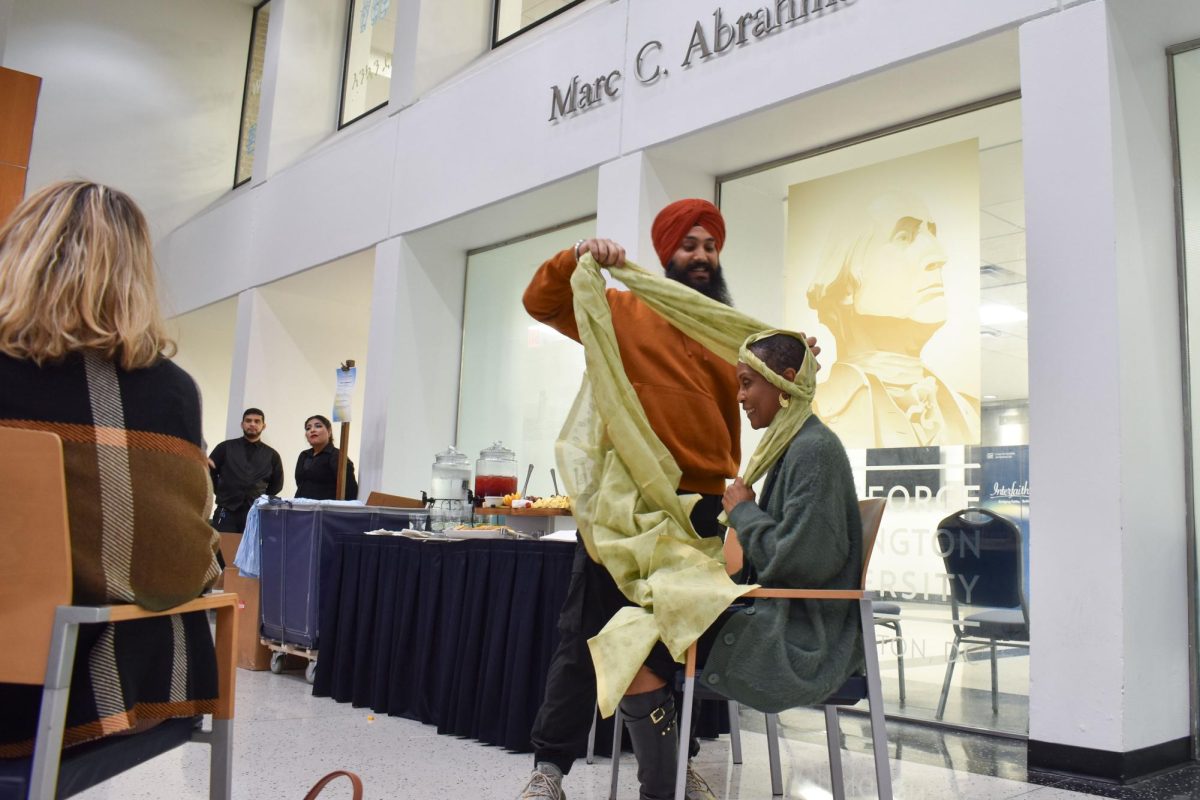GW Hillel will tear down its 30-year-old student center this summer to make room for a multi-million dollar building twice its size.
The new Jewish community hub will have four above-ground floors, two of which the University will lease for student space. Workers are expected to finish the project in January 2016, which leaves Hillel without a home for about a year and a half.
In addition to added programming space and a rooftop terrace, Hillel will use the building to launch a Kosher meal service – the first in many years.
The project has been in the works for at least five years – coming to fruition even after the organization was hit hard by slowing fundraising and lost money from Bernard Madoff’s investment scheme.
Rabbi Yoni Kaiser-Blueth, Hillel’s executive director, said the expansion will help Hillel serve a larger community of alumni and young professionals, not just students.
“Reimagining what our facility could look like as a focal point, a hub for all Jewish activity on this campus, but also young professionals as a community center – it’s very exciting,” Kaiser-Blueth said. “That also expands the reach and the idea of the Jewish journey that is not just four years in college, but beyond.”
Last April, Hillel absorbed an organization geared toward young, Jewish professionals in D.C. called Gather the Jews.
The project is entirely funded by private donations, mostly from alumni. Kaiser-Blueth declined to provide the project’s cost or the organization’s total fundraising so far.
Kaiser-Blueth said GW has not said how exactly it will use the top two floors, but said the space will be “focused on student life” and represent a “shared mission” on campus.
He will present plans to Foggy Bottom’s local governing body next week as the organization begins applying for construction permits.
The rabbi said he is working with GW officials to find a temporary space during the year and a half of construction.
While some programs may have to be “tweaked and changed,” he said, Hillel will continue to provide services like Shabbat dinners to Jewish students on campus.
Dan Rosenberg, president of the Jewish Student Association, which regularly hosts events in Hillel, said he will push for a design that stresses a “homey” feel for students.
“[Students] want to have the opportunity to hang around and socialize and feel like a big community,” Rosenberg said. “I want us to help grow the community.”
The organization initially announced $2 to $3 million renovation plans in May 2008. But several months later, the organization’s fundraising took a 22 percent hit from the financial crisis, then its endowment dipped 8 percent in the wake of the Bernard Madoff investment scandal.
When the project got back on solid footing, Hillel officials decided to start from scratch rather than attempt to renovate or retrofit the current building, Robert Fishman, Hillel’s capital campaign director, said.
“We’re doing this because it’s something that needs to be done. This facility itself has, like anything, it had a lifespan and that lifespan is basically over,” Fishman said.
Fishman said the organization is ultimately defined by its outreach and programming, which it will continue to provide without a permanent home on campus next year.
“The building itself complements Hillel,” Fishman said. “Hillel is not a building.”






